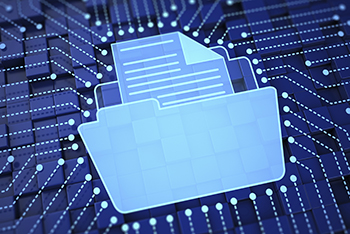 Feb. 23, 2016 – The Wisconsin Supreme Court today adopted a petition that will require parties to file cases electronically (e-file) – starting at $20 per case, per party – after a public hearing that primarily addressed funding for a mandatory e-filing system.
Feb. 23, 2016 – The Wisconsin Supreme Court today adopted a petition that will require parties to file cases electronically (e-file) – starting at $20 per case, per party – after a public hearing that primarily addressed funding for a mandatory e-filing system.
At its open administrative rules conference, the court unanimously adopted amended petition 14-03, filed by the Committee of Chief Judges in December 2015. The court still needs to approve final rule language to address amendments and will likely do so in March.
The approved plan calls for counties to implement mandatory e-filing – in order of readiness – in civil, small claims, paternity, and family cases beginning on July 1, 2016, starting with counties that currently offer e-filing on a voluntary basis.
Currently, 49 counties allow e-filing in civil, small claims, and family cases (12 counties additionally allow it in paternity cases). However, a very small percentage of cases are currently e-filed. Thus, mandatory e-filing is necessary in order for the court system to realize the efficiencies that will be created, proponents of the e-filing system have noted.
The counties with voluntary e-filing will be the first to implement mandatory e-filing, since they already have systems in place to make the transition. The Consolidated Court Automation Programs (CCAP), which will implement and maintain the e-filing system, will be providing the necessary software and training in the coming months.
The remaining counties will implement mandatory e-filing in civil, small claims, paternity, and family cases by the end of 2017. Other case types will be added as resources permit, with full implementation of e-filing for all case types by the end of 2019.
The e-filing fee, set under the Director of State Courts’ statutory authority, will be waived for indigent parties and governmental units represented by state, district, county, and municipal attorneys, including public defenders and child support agency attorneys. E-filing will still be voluntary for self-represented litigants, who will pay the user fee.
Two pilot counties will go mandatory this spring to identify kinks in the e-filing system before statewide implementation starts in July. Look for more information about the mandatory e-filing system, and what it means for attorneys, in the coming months.
Judges Push for Implementation
Three circuit court judges – Judge Robert Wirtz of Fond du Lac, Judge Randy Koschnick of Jefferson County, and Judge Richard Sankovitz of Milwaukee County – urged the supreme court to adopt the amended petition at today’s public hearing.
The Committee of Chief Judges, chief circuit court judges from 10 judicial administrative districts, first submitted a mandatory e-filing proposal in 2014. But it was premised on $2.1 million in state funding, as well as an initial $5 per case, per party user fee.
But the 2015-17 state budget did not include start-up funds to implement e-filing, so the amended petition increased the user fee to $20 per case, per party, in addition to other amendments. The State Bar of Wisconsin’s Board of Governors voted unanimously to support the proposal. It had also supported the original petition.
“This has been pending for over a year,” Judge Koschnick told the justices. “I don’t see significant concern or resistance. We simply need to move ahead.”
Judge Wirtz said Wisconsin’s court filing system is “floating in a sea” of inefficiency – with one foot in e-filing and one foot in paper – and mandatory e-filing will modernize filing practices in Wisconsin. “If we don’t make a decision and move forward, we cannot reap the benefits of an e-filing system.”
Judge Sankovitz said this e-filing system, implemented and maintained by CCAP, rather than private vendors, will allow the court system to better control the user fee necessary to support the program.
Justices Shirley Abrahamson and Ann Walsh Bradley raised questions about imposing a user fee that can be recouped by winning parties, since many low-income parties would be responsible to pay it. Abrahamson suggested that State Bar members should pay the fee as an annual assessment.
Sankovitz noted that most cases, more than 80 percent, involve settlement agreements where costs can be negotiated. He also said an annual assessment on lawyers could be passed on to clients in the form of increased rates, with access to justice implications.
A user fee, on the other hand, allows lawyers who file cases in circuit court to eat the cost if they wish to do so. He noted that the e-filing fee will replace other costs associated with filing paper documents, include postage, paper, and printing expenses, and courier services.
"The lawyer pays the fee, then decides whether to pass it on," he said. "Fewer lawyers are charging for that type of fee."
Justice Bradley also asked why the Committee of Chief Judges did not pursue the Public Access to Court Electronic Records (PACER) system, an e-filing system that the federal courts have been using for more than 25 years.
Sankovitz said that system is more complex and could be explored in the future. But Wisconsin has CCAP, and funding restictions made this the best proposal among all the options available.
